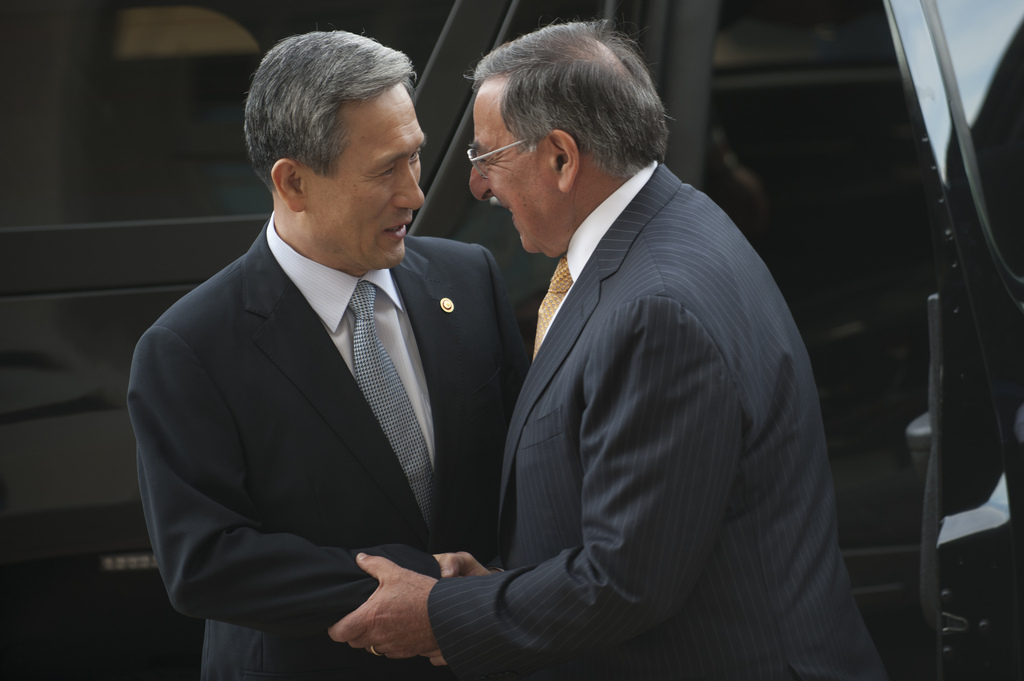The Peninsula
Could a Third North Korean Nuclear Test Strain U.S.-South Korea Coordination?

By Nicholas Hamisevicz
Earlier this week the United Nations Security Council (UNSC) finally responded to North Korea’s December 12th rocket launch with a new resolution. Predictably, North Korea reacted angrily with statements, including one attributed to its National Defense Commission (NDC). The NDC statement specifically targeted the United States as a problem and as a threat to North Korea; moreover, it vowed that “a variety of satellites and long-range rockets will be launched by the DPRK one after another and a third nuclear test of higher level which will be carried out by it in the upcoming all-out action, a new phase of the anti-U.S. struggle that has lasted century after century, will target against the U.S., the sworn enemy of the Korean people.” North Korea has conducted nuclear tests in the past after being punished by UN resolutions for launching missiles. If the North Korean leadership tests another nuclear device, it might actually do more to separate U.S.-ROK coordination than the anticipated engagement of North Korea from the incoming Park Geun-hye administration.
This potential nuclear test could disrupt close U.S.-ROK coordination. In the event of a third North Korean nuclear test, the U.S. would have to respond, at least with another trip to the UNSC to maintain some credibility for UN resolutions and to demonstrate an international consensus against North Korea’s actions. Moreover, a successful nuclear test would move North Korea one step closer to being a direct threat to U.S. territory. Two years ago, then U.S. Secretary of Defense Robert Gates said that North Korea would be able to hit the continental U.S. within five years with an intercontinental ballistic missile. North Korea’s actions suggest they are trying to make that schedule a reality and become a direct threat to the U.S., not just to its troops, citizens, and interests in Asia. These factors could force the Obama administration to push for a firm response from its South Korean ally to the nuclear test rather than supporting its immediate direct outreach.
Even though support for engagement with North Korea inside the U.S. is quite low because of the difficulty in getting a quicker turnaround on a resolution condemning the North Korean rocket launch, the April rocket launch that scuttled the February 29 agreement between the U.S. and North Korea, and North Korean missile and nuclear tests in 2009 that welcomed an incoming President Obama open to engagement, it could still be possible. In President Obama’s second inaugural address he stated that “engagement can more durably lift suspicion and fear.” Additionally, his likely incoming Secretary of State John Kerry has been perceived as more open to dialogue. Lastly, the U.S. wants to be supportive of South Korea in inter-Korean relations, and would probably look for ways to demonstrate its support for the South Korean government’s engagement efforts. In some ways, a second Obama administration and the more cautious approach to engagement described by the Park Geun-hye team was seen as the best possible combination for maintaining strong U.S.-South Korea relations through difficult early challenges. Thus, the often worrisome divergence in the engagement and containment approaches by the U.S. and South Korea that have caused separation in U.S.-Korea relations in the past could be minimized. But those small possibilities for support and engagement shrink considerably if North Korea tests a nuclear device.
A third nuclear test would put Park Geun-hye in an almost no win situation. If she immediately engages North Korea after a nuclear test, it could be seen as undermining her pledge to present a credible deterrence and seek commensurate actions from North Korea on denuclearization. This is especially the case in light of North Korea’s threat to attack South Korea if it takes part in new UN sanctions. If she pushes for tougher sanctions and doesn’t reach out to North Korea quickly, she could be seen as failing to live up to her campaign pledges and continuing the perceived hard-line policy of President Lee Myung-bak. Park campaigned on a new engagement with North Korea based on trust. A positive action from North Korea would help her argue that South Korea can benefit from engaging North Korea and convince the U.S. to support her policy, but a significant gesture hasn’t happened yet. A last resort for justifying an outreach gesture, especially if North Korea explodes a nuclear device before her inauguration, is to blame the test on President Lee’s perceived failure to engage North Korea.
But with such a direct reference to the U.S., could the Park administration convince President Obama and his team to support South Korea’s outreach to North Korea after a nuclear test? Exploding a nuclear device challenges the ability of the U.S.-Korea alliance’s leaders to coordinate potentially different policies toward North Korea aimed at convincing it not to provoke the U.S. and its neighbors. A third nuclear test could lead to a difference in approaches by Park and Obama administrations toward North Korea and could create that separation amongst allies that North Korea loves to exploit even further.
Nicholas Hamisevicz is the Director of Research and Academic Affairs for the Korea Economic Institute. The views represented here are his own.
Photo from the Secretary of Defense’s photo stream on flickr Creative Commons.
